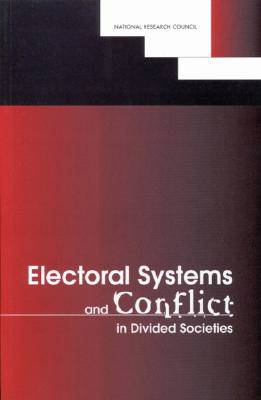
- Afhalen na 1 uur in een winkel met voorraad
- Gratis thuislevering in België vanaf € 30
- Ruim aanbod met 7 miljoen producten
- Afhalen na 1 uur in een winkel met voorraad
- Gratis thuislevering in België vanaf € 30
- Ruim aanbod met 7 miljoen producten
Electoral Systems and Conflict in Divided Societies
National Research Council, Division of Behavioral and Social Sciences and Education, Commission on Behavioral and Social Sciences and Education, Committee on International Conflict Resolution, Andrew Reynolds, Ben ReillyOmschrijving
This paper is one of a series being prepared for the National Research Council's Committee on International Conflict Resolution. The committee was organized in late 1995 to respond to a growing need for prevention, management, and resolution of violent conflict in the international arena, a concern about the changing nature and context of such conflict in the post-Cold War era, and a recent expansion of knowledge in the field.
The committee's main goal is to advance the practice of conflict resolution by using the methods and critical attitude of science to examine the effectiveness of various techniques and concepts that have been advanced for preventing, managing, and resolving international conflicts. The committee's research agenda has been designed to supplement the work of other groups, particularly the Carnegie Corporation of New York's Commission on Preventing Deadly Conflict, which issued its final report in December 1997. The committee has identified a number of specific techniques and concepts of current interest to policy practitioners and has asked leading specialists on each one to carefully review and analyze available knowledge and to summarize what is known about the conditions under which each is or is not effective. These papers present the results of their work.
Specificaties
Betrokkenen
- Auteur(s):
- Uitgeverij:
Inhoud
- Aantal bladzijden:
- 72
- Taal:
- Engels
- Reeks:
- Reeksnummer:
- nr. 2
Eigenschappen
- Productcode (EAN):
- 9780309064460
- Verschijningsdatum:
- 20/05/1999
- Uitvoering:
- Paperback
- Formaat:
- Trade paperback (VS)
- Afmetingen:
- 152 mm x 229 mm

Alleen bij Standaard Boekhandel
Beoordelingen
We publiceren alleen reviews die voldoen aan de voorwaarden voor reviews. Bekijk onze voorwaarden voor reviews.











